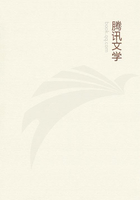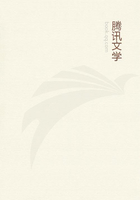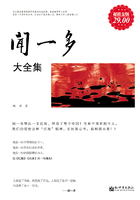That, however, the League had been an excellent school for revolutionary activity was now demonstrated. On the Rhine, where the _Neue Rheinische Zeitung_ provided a firm centre, in Nassau, in Rhenish Hesse, etc., everywhere members of the League stood at the head of the extreme democratic movement. The same was the case in Hamburg. In South germany the predominance of petty-bourgeois democracy stood in the way. In Breslau, Wilhelm Wolff was active with great success until the summer of 1848; in addition he received a Silesian mandate as an alternate representative in the Frankfort parliament. Finally, the compositor Stephan Born, who had worked in Brussels and Paris as an active member of the League, founded a Workers' Brotherhood in Berlin which became fairly widespread and existed until 1850. Born, a very talented young man, who, however, was a bit too much in a hurry to become a political figure, "fraternized" with the most miscellaneous ragtag and bobtail in order to get a crowd together, and was not at all the man who could bring unity into the conflicting tendencies, light into the chaos. Consequently, in the official publications of the association the views represented in the _Communist Manifesto_ were mingled hodge-podge with guild recollections and guild aspirations, fragments of Louis Blanc and Proudhon, protectionism, etc.; in short, they wanted to please everybody [allen alles sein]. In particular, strikes, trade unions and producers' co-operatives were set going and it was forgotten that above all it was a question of first conquering, by means of political victories, the field in which alone such things could be realized on a lasting basis. When, afterwards, the victories of the reaction made the leaders of the Brotherhood realize the necessity of taking a direct part in the revolutionary struggle, they were naturally left in the lurch by the confused mass which they had grouped around themselves. Born took part in the Dresden uprising in May, 1849 and had a lucky escape. But, in contrast to the great political movement of the proletariat, the Workers' Brotherhood proved to be a pure _Sonderbund_[separate league], which to a large extent existed only on paper and played such a subordinate role that the reaction did not find it necessary to suppress it until 1850, and its surviving branches until several years later. Born, whose real name was Buttermilch, has not become a big political figure but a petty Swiss professor, who no longer translates Marx into guild language but the meek Renan into his own fulsome German.
With June 13, 1849, the defeat of the May insurrections in Germany and the suppression of the Hungarian revolution by the Russians, a great period of the 1848 Revolution came to a close. But the victory of the reaction was as yet by no means final. A reorganziation of the scattered revolutionary forces was required, and hence also of the League. The situation again forbade, as in 1848, any open organization of the proletariat; hence one had to organize again in secret.
In the autumn of 1849, most of the member of the previous central committees and congresses gathered again in London. The only ones still missing were Schapper, who was jailed in Wiesbaden but came after his acquittal, in the spring of 1850, and Moll, who, after he had accomplished a series of most dangerous missions and agitational journeys -- in the end he recruited mounted gunners for the Palatinate artillery right in the midst of the Prussian army in the Rhine Province -- joined the Besancon workers' company of Willich's corps and was killed by a shot in the head during the encounter at the Murg in front of the Rotenfels Bridge. On the other hand, Willich now entered upon the scene. Willich was one of those sentimental Communists so common in Western Germany since 1845, who on that account alone was instinctively, furtively antagonistic to our critical tendency. More than that, he was entirely the prophet, convinced of his personal mission as the predestined liberator of the German proletariat and as such a direct claimant as much to political as to military dictatorship. Thus, to the primitive Christian Communism previously preached by Weitling was added a kind of communist Islam. However, the propaganda of this new religion was for the first time being restricted to the refugee barracks under Willich's command.
Hence, the League was organized afresh; the Address of march 1850was issued and Heinrich bauer sent as an emissary to Germany. The Address, composed by Marx and myself, is still of interest today, because petite-bourgeois democracy is even now the party which must certainly be the first to come to power in Germany as the savior of society from the communist workers on the occassion of the next European upheaval now soon due (the European revolutions, 1815, 1830, 1848-52, 1870, have occurred at intervals of 15 to 18 years in our century).
Much of what is said there is, therefore, still applicable today.
Heinrich bauer's mission was crowned with complete success. The trusty little shoemaker was a born diplomat. He brought the former members of the League, who had partly become laggards and partly were acting on their own account, back into the active organization, and particularly also the then leaders of the Workers' Brotherhood. The League began to play the dominant role in the workers', peasants' and athletic associations to a far greater extent than before 1848, so that the next quarterly address to the communities, in June 1850, could already report that the student Schurz from Bonn (later on American ex-minister), who was touring Germany in the interest of petty-bourgeois democracy, "had found all fit forces already in the hands of the League". The League was undoutbedly the only revolutionary organization that had any significance in Germany.















